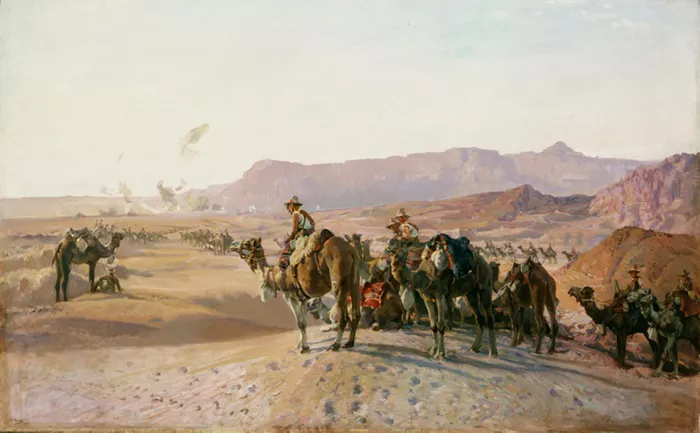December 23 has witnessed several pivotal events in Australian history, spanning legislative changes, military achievements, labor movements, and public health milestones. This article delves into these significant occurrences, providing a comprehensive overview of their context and implications.
What Happened on December 23 in Australian History?
The Immigration Restriction Act 1901
On December 23, 1901, the Immigration Restriction Act came into force in Australia. This legislation marked the beginning of the White Australia Policy, which aimed to restrict non-European immigration to Australia. The Act was a response to growing concerns among white Australians about the influx of Asian immigrants, particularly from China and other parts of Asia during the gold rush era.The White Australia Policy was rooted in racial discrimination and aimed to maintain a homogenous white society. It established a system of immigration controls that included literacy tests and other barriers designed to exclude non-European immigrants. This policy remained in effect for much of the 20th century and significantly shaped Australia’s demographic landscape.The implications of this Act were profound. It not only affected immigration patterns but also laid the groundwork for systemic racism that persisted in various forms throughout Australian society. The policy was gradually dismantled starting in the 1940s, culminating in its official repeal in the early 1970s, reflecting changing attitudes towards multiculturalism and diversity in Australia.
The Battle of Magdhaba (1916)
Another significant event that took place on December 23 occurred during World War I. In 1916, Australian and New Zealand mounted troops participated in the Battle of Magdhaba in the Sinai Desert. This battle was part of the broader campaign against Ottoman forces during the war.The capture of Magdhaba was a strategic victory for Allied forces, as it opened up pathways for further advances into Palestine. The success at Magdhaba demonstrated the effectiveness of mounted troops in desert warfare and highlighted the contributions of Australian forces on international battlefields.Australian troops faced challenging conditions during this campaign, including harsh weather and logistical difficulties. However, their resilience and tactical prowess led to significant military achievements that bolstered Allied efforts in the Middle East.
The Timber Workers Strike (1929)
On December 23, 1929, a significant labor dispute unfolded when timber workers across Australia went on strike due to unfavorable wage conditions imposed by Judge Lukin of the Arbitration Court. The ruling mandated an increase in working hours from a 44-hour week to a 48-hour week without corresponding wage increases.This decision sparked widespread discontent among timber workers who felt their rights were being undermined. The strike was part of a broader labor movement during this period, where workers sought better pay and working conditions amidst economic challenges following World War I.The strike highlighted the growing tensions between labor unions and government authorities. It also underscored the importance of collective bargaining as workers organized to demand fair treatment. Ultimately, this event contributed to shaping labor rights and policies in Australia over subsequent decades.
The First Death from HIV/AIDS (1983)
A landmark moment occurred on December 23, 1983, when Australia recorded its first death attributed to the HIV/AIDS virus. This event marked a turning point in public health awareness regarding HIV/AIDS and its devastating impact on individuals and communities.In the early years of the HIV/AIDS epidemic, misinformation and stigma surrounded the disease. Many viewed it as a condition affecting specific groups, particularly gay men. However, as awareness grew following this first reported death, public health campaigns began to address prevention strategies and promote safe practices.The response to HIV/AIDS in Australia involved significant activism from affected communities and healthcare professionals. Over time, Australia developed comprehensive strategies for managing HIV/AIDS, including education programs, testing services, and access to treatment. This proactive approach has made Australia one of the leading countries in managing HIV/AIDS effectively.
Conclusion
December 23 has been a date marked by significant events that have shaped Australia’s social fabric and historical trajectory. From legislative measures like the Immigration Restriction Act to military victories such as those at Magdhaba, labor movements like the Timber Workers Strike, and public health milestones regarding HIV/AIDS awareness, each event reflects broader themes within Australian history.These occurrences not only highlight key moments but also illustrate how historical events influence contemporary society. Understanding these events provides valuable insights into Australia’s evolution as a nation characterized by its diverse population and complex history.As we reflect on these events each year on December 23, it is crucial to acknowledge their lasting impacts on Australian identity and policy while striving for a more inclusive future that embraces diversity and equality for all Australians.
Related Topics:

